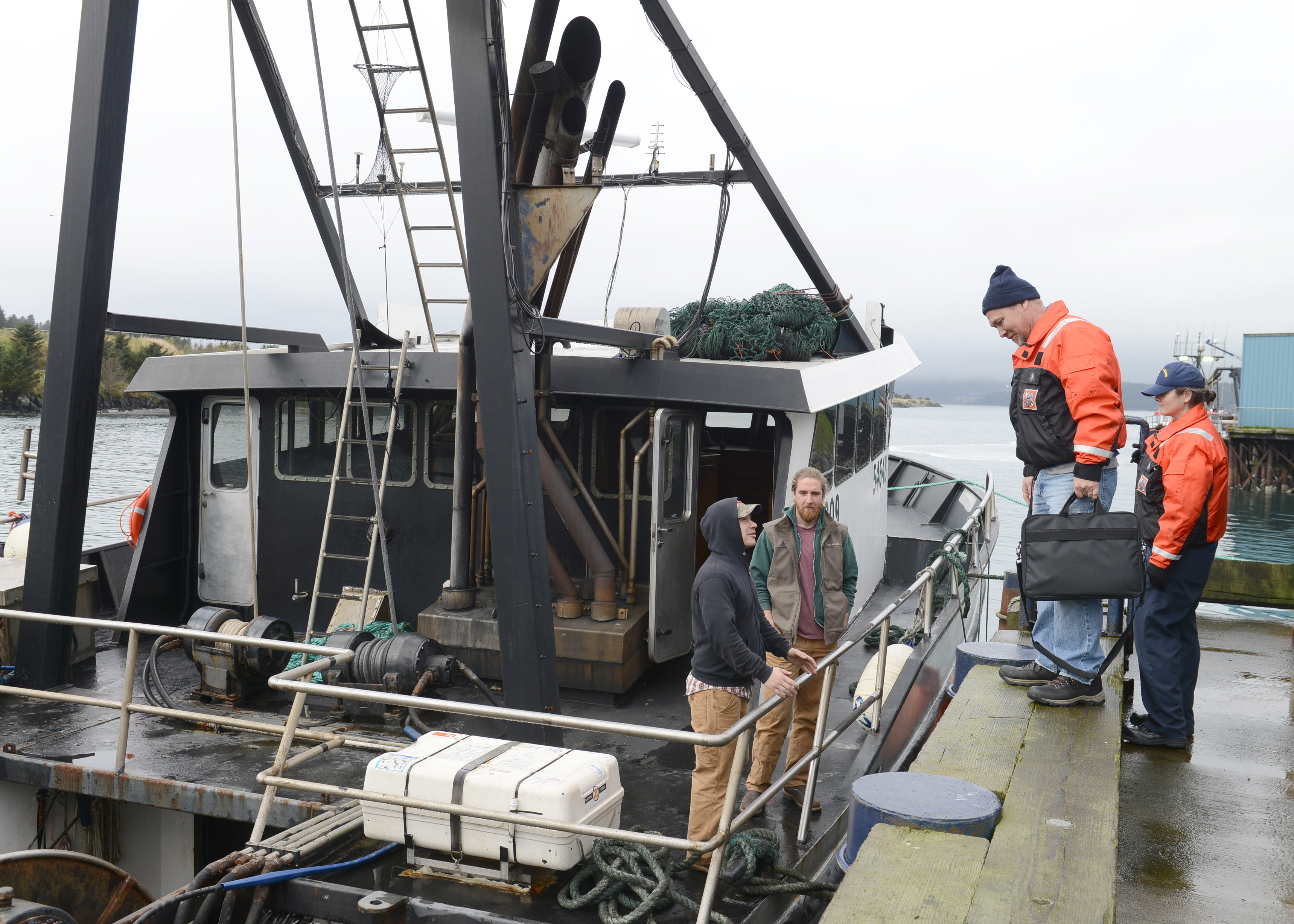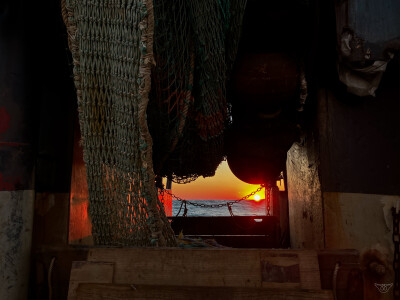The Coast Guard has lagged for years in implementing better safety measures for commercial fishing vessels, despite clear authorization and direction from Congress to do more, the Government Accountability Office says in a new report.
GAO reviewers found the Coast Guard has not fully implemented 17 of 22 statutory requirements since 2010 to improve commercial fishing vessel safety, such as developing a training program for fishermen, and re-establishing an advisory committee on industry safety issues.
Moreover the Coast Guard lacks a detailed, programmatic plan to issue regulations and implement goals that Congress has set forth over years of legislative reform, the report found.
Topping the GAO’s recommendations is a call to clarify Coast Guard policy on enforcing the requirement that fishing vessels undergo dockside safety examinations – a critical keystone of the commercial fishing vessel safety program.
Mandatory dockside exams are free. When a vessel meets safety requirements, a decal is issued with an expiration date of two years. The next mandatory exam must be completed within five years from the issue date of the most recent decal.
In 2015, the Coast Guard directed boarding officers to begin enforcing the dockside exam requirement for at-sea boardings. Officers were to issue a written warning at the first boarding of a vessel that had not completed a required dockside exam, and subsequent boardings of the vessel could result in a violation if its owners still had not obtained a dockside exam.
However the enforcement policy changed in 2019 so that boarding officers were no longer to issue a violation. Coast Guard officials explained to the GAO that they changed the policy because of concerns about the agency’s authority to enforce the exam requirement.
But the Coast Guard never formally canceled the interim guidance, and personnel in some regions were not aware that the enforcement policy had changed. After GAO reviewers raised the issue, the Coast Guard’s commercial fishing vessel safety program officials said in June 2022 they would start discussing the enforcement policy with their law enforcement colleagues in June 2022.
“These officials also said they intend to issue written clarification to ensure that all relevant Coast Guard personnel are aware of the policy,” the GAO report says. “However, they were not able to provide documentation or time frames for these efforts.”
Another finding criticizes the Coast Guard’s inaction on developing “alternate safety standards for older fishing vessels, which account for almost 80 percent of fishing vessel losses,” the report states. Congress originally set a 2017 goalpost for coming up with those standards.
“The Coast Guard stated it does not have the authority to address the requirement to develop alternate safety standards for older fishing vessels,” the GAO noted. “However, based on GAO's review of the applicable statutory provisions, the Coast Guard does have the authority to implement this requirement.”
In fact, in July 2021 the Coast Guard informed Congress that it would not take further action on the requirement. Coast Guard officials explained “the agency’s position is that an alternate safety compliance program is an alternative to classification requirements. These officials stated that because older vessels have not been subject to classification requirements (unlike newer boats), there are no baseline requirements against which the Coast Guard can establish alternate requirements,” the GAO report notes.
In June 2016, the Coast Guard issued a proposed rule intended to address nine of 16 outstanding Congressional requirements, the GAO reported.
“However, as of August 2022, the rule had not been finalized, and the Coast Guard had no detailed plan for implementing these requirements,” the report notes. “Developing and implementing alternate safety standards for older vessels and developing a plan with time frames for implementing the other 16 requirements would help to address the Coast Guard's statutory responsibilities and support efforts to prevent fishing vessel losses and related fatalities.”
Other detailed analyses of the commercial vessel safety program make programmatic recommendations for how the Coast Guard could do better planning and use more data to improve its systems and measure performance.
The GAO made six recommendations to Coast Guard Commandant Adm. Linda L. Fagan:
- Ensure that the Fishing Vessel Safety Division, in coordination with the Office of Maritime Law Enforcement, clarifies and documents the agency’s policy on the enforcement of the dockside exam requirement during at-sea boardings of commercial fishing vessels.
- Have the Assistant Commandant for Prevention Policy develop and implement an alternate safety compliance program, as required by law.
- Ensure that the Assistant Commandant for Prevention Policy develops a plan with time frames and interim milestones to fully implement the other 16 outstanding statutory requirements for commercial fishing vessel safety, including issuing regulations.
- Make the Fishing Vessel Safety Division establish performance goals for the commercial fishing vessel safety program that fully address all aspects of the program’s strategic goals.
- Set realistic targets for the Fishing Vessel Safety Division commercial fishing vessel safety program’s performance goals.
- Use performance data to assess progress by the Fishing Vessel Safety Division towards the commercial fishing vessel safety program’s goals on a regular basis.







